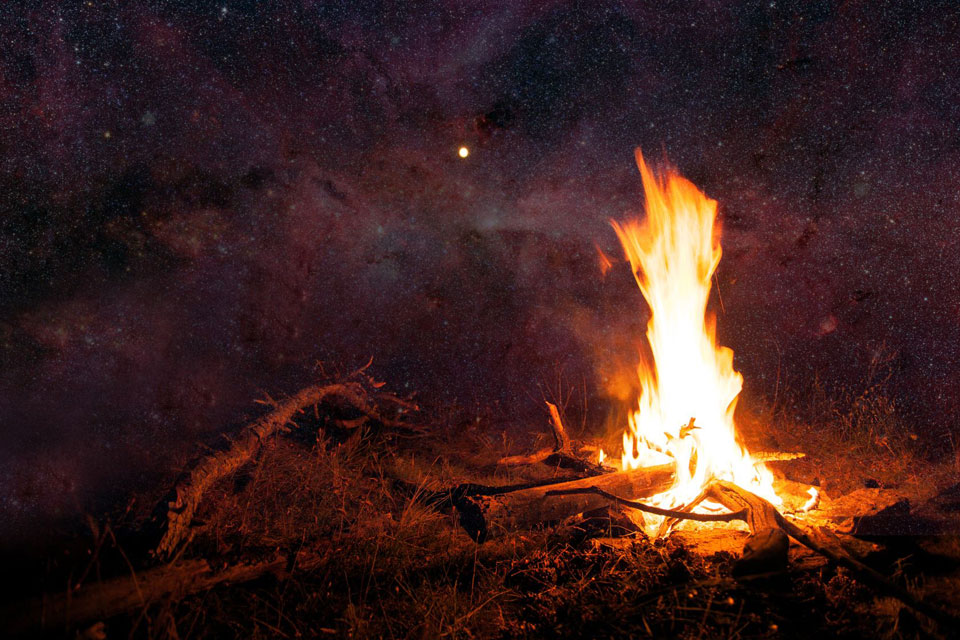Most of us like to think that we’re creative enough to survive if we find ourselves lost on a run — so lost, your only recourse is waiting for someone to find you. But like most traumatic experiences, do you really know how you would act if confronted with this worst-case scenario?
New Zealander Susan O’Brien found herself in such a situation recently and you may want to make her your bravery and ingenuity role model.
The 29-year-old mom was running a 20km through Rimutaka Forest Park, an event that should have taken less than three hours — had she not gone off course and got lost. How did she survive? She dug a hole, covered herself in mud to stay warm and drank her own breast milk.
After an awful night in the woods, she was safely returned to her family and vowed to keep running! Her experience is a lesson to us all that one woman’s tenacity and will to survive can’t be thwarted by nature!
Would you be this brave and inventive if you found yourself in Susan’s situation? You could surprise yourself, but why wait for surprises when you can prepare yourself for any eventuality in the time it takes for you to read this article?
These tips may even save your life.
Mind over matter
Tip #1: Never say, “It won’t happen to me!” Admit that there’s a possibility of misreading directions and getting lost so you’re prepared up front to do what it takes to come through your “detour” in good shape.
Tip #2: Don’t underestimate the role willpower plays in survival situations. The media is filled with stories of children who have survived being out in the wilderness because they were raised by parents who educated them on what to do and how to behave.

Tip #3: Accept the fact that stress can play a negative role in your battle to survive. If you panic and aren’t prepared to meet the challenges of wilderness survival, your chances of surviving decrease.
Tip #4: Always chat with other runners you meet at events so they are aware of your existence and will miss seeing you at the finish line. Solitary souls so focused on strategies and personal bests that they ignore fellow runners are most at risk.
Tip #5: The likelihood that you will stay calm as time passes and nobody finds you is low. Panic may set in — unless you practice deep breathing and other mind calming tactics that clear your head so you can maintain a positive, hopeful demeanor.
Make a survival camp
Tip #1: Take an inventory. Empty your pockets, fanny pack or backpack to assess the tools available to you. If you read the book “The Hatchet,” you know the hero made a bow and arrow with his shoelaces. Tom Hanks, in the film “Castaway,” made a volleyball his “companion.” Think strategically.
Tip #2: Seek shelter. Before you decide to make a structure with the natural materials that surround you, look first for caves and over-hanging rock formations. If nothing suits your needs, construct a shelter of plant limbs, leaves and foliage or dig a hole, as did Susan O’Brien.

Tip #3: Conserve water. You can last three days without it, but if you brought along a bottle in the interest of hydrating your body on your run, put yourself on a rationing system by sipping rather than gulping to make the water last longer. Collect rainwater in your shoe or hat if a downpour hits.
Tip #4: Learn what “not to eat” in the wild before you go picking mushrooms and berries! It’s better to do without food than to poison yourself accidentally. Food sources will likely be all around you, but if days pass without rescuers finding you, you may have to overcome your distaste for creepy crawly protein sources.
Tip #5: Never go on a wilderness run without tools for making a fire. Matches weigh so little, it’s hard to believe a runner would refuse to put them in a pocket along with the one tool that is irreplaceable in survivalist circles: a multi-tool pocket knife. If this subject intrigues you, research other ways to start a fire without matches!
Tip #6: If you don’t have a communication device on your person or cell towers are nowhere to be found in densely forested areas, your mobile is of no use anyway, but if you bring along a compass, you have a tool to guide you if you want to leave your base and go in search of help.
Further your education
Tip #1: Consider enrolling in survival school to learn how to act and behave if you get lost in the wilderness under the tutelage of an experienced wilderness professional like Training by Glen. He runs one of the few private wilderness training entities in Singapore.

Tip #2: Set up your own test run with a couple of friends by bringing basic tools to a remote location to see how creative you can get in a real time situation. Commit to a night on the ground to get the full experience if you believe that you and your pals are disciplined enough to stick to your plan.
Tip #3: Can’t afford private survival training? Consult Singapore resources. Try Outward Bound Singapore, the Red Cross and the National Parks Board. If they can’t help, perhaps they know of organisations you can turn to!
Do you feel prepared to survive if you get lost on a run, a disaster strikes or, on a less serious note, there’s a zombie apocalypse? What survival tip(s) would you be willing to share with fellow runners?




